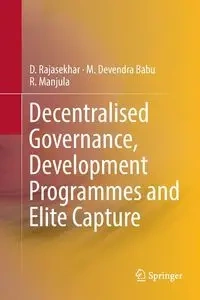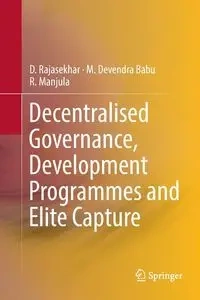Decentralised Governance, Development Programmes and Elite Capture - Rajasekhar D.
This book discusses the elite capture taking place in the development programmes implemented through Grama Panchayats (GPs), the lowest tier in the rural local self-government structure in India. Inclusive growth being the cherished goal of all the developing countries, including India, the book assesses whether checks and balances incorporated in development programmes prevent elite capture and promote inclusive development. It also highlights the role of community-based organisations, such as SHGs, in ensuring development benefits reach marginalized groups.
EAN: 9789811347016




This book discusses the elite capture taking place in the development programmes implemented through Grama Panchayats (GPs), the lowest tier in the rural local self-government structure in India. Inclusive growth being the cherished goal of all the developing countries, including India, the book assesses whether checks and balances incorporated in development programmes prevent elite capture and promote inclusive development. It also highlights the role of community-based organisations, such as SHGs, in ensuring development benefits reach marginalized groups.
EAN: 9789811347016

